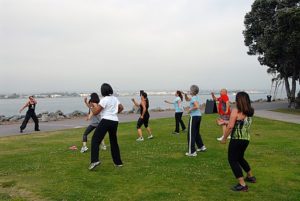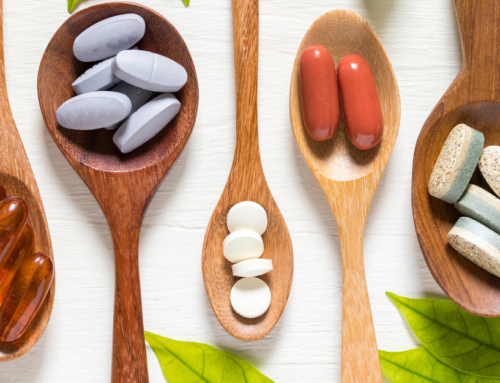How you were born could shape the rest of your life thanks to the effects of bacteria at birth
Whether you’re fat or thin, anxious or relaxed, sickly or resilient — this could all stem from the way you were born thanks to the effects of bacteria in our first few seconds of life. Babies born via c-section are shown to have less desirable gut bacteria, or a gut microbiome, compared to babies born vaginally, who have healthier microbiome “signatures.”
Results from the largest study of the newborn microbiome were recently published. The study found that newborns delivered via c-section lack the healthy gut bacteria found in vaginally delivered babies. Their guts also contain strains of harmful microbes — Enterococcus and Klebsiella — commonly found in hospitals.
In fact, the lead researcher said the levels of harmful hospital bacteria in the c-section newborns was “shocking.” These babies were also deficient in the healthy bacteria that made up most of the guts of the vaginally born babies.
The difference was so profound that he said he can tell you how the baby was born simply by analyzing the bacteria in their stool.
C-section babies missing strain vital for health, weight management, and immune resilience
After several months the gut microbiomes between the two set of infants became more similar with one striking difference — the c-section babies had significantly lower levels of Bacteroides, a strain vital to human health.
Bacteroides are a key strain when it comes to health challenges modern societies face. A number of studies have shown Bacteroides levels are lower in people with obesity. Studies in both mice and humans show that when gut bacteria from thin subjects are transplanted into the colons of obese subjects, most subjects lose weight.
Bacteroides has also been linked with preventing anxiety, and boosting and regulating immunity to prevent inflammatory disorders. This may explain why people who were born via c-section are at increased risk for obesity and asthma.
The study is part of a larger Baby Biome study that is following thousands of newborns through childhood.
Why method of birth affects the gut microbiome
Research suggests that the vaginal canal imparts beneficial bacteria to the infant during birth, while c-section babies are deprived of that and instead immediately exposed to the bacteria of the hospital and the people attending the birth. Studies are underway in which babies born via c-section are swabbed with the mother’s vaginal microbes.
Other factors to consider beyond birth
It may not just be the birth that determines a c-section baby’s poorer microbiome status. Women who undergo c-sections also receive antibiotics, which may transfer to the newborn through the placenta and later through breast milk. These babies also tend to stay in the hospital longer and thus are exposed to more hospital bacteria.
How to develop healthy gut bacteria
Developing good gut bacteria is not neccesarily as simple as taking probiotics. You may also be overrun with detrimental bacteria that need to be “weeded.”
Perhaps most important is whether your diet supports a healthy gut microbiome.
What the gut microbiome needs most is an ample supply of vegetables and fruits on a regular basis in a wide, ever changing variety. Eating a diverse and abundanat array of plant foods will help create a diverse and abundant gut microbiome.
Ask my office for more advice on how we can help you improve your gut microbiome and overall health.
Do you have autoimmunity or brain inflammation and suffer from exercise intolerance?
If there were just one magic bullet to feel and function better, it would probably be exercise. Countless studies show the numerous benefits of exercise. Our bodies and brain were designed for constant physical activity and perform at their best when we provide that. Exercise releases chemicals that boost your overall energy and dampen inflammation.
But what to do if exercise actually makes you feel worse? Some people battling autoimmunity or brain inflammation suffer from exercise intolerance and see their symptoms worsen after physical activity.
Many autoimmune and brain inflammation patients see multiple doctors before receiving a diagnosis. Most of these doctors will tell a severely compromised patient they just need to exercise more. This advice can actually worsen a patient’s symptoms until they start bringing their inflammation under control.
What is exercise intolerance?
In the conventional medical model, exercise intolerance is most often associated with heart disease, particularly from the heart not filling adequately with blood. As a result, insufficent blood is pumped out to the rest of the body.
However, in functional medicine we frequently see exercise intolerance in people struggling with autoimmunity and brain inflammation.
It’s normal to feel sore or tired after a tough workout, but people who suffer from exercise intolerance experience more severe and unusual pain, fatigue, a flare up of their autoimmune symptoms, nausea, vomiting, or other negative effects that go beyond normal muscle tiredness. Some “crash” for a day or more with flu-like symptoms, feeling unable to get out of bed or function normally.
Exercise intolerance can be very emotionally distressing for people who care about their health and are working to improve it. Afterall, we are constantly bombarded with images of uber athletes and messaging about intense workouts.
What causes exercise intolerance?
When exercise intolerance is related to autoimmunity or brain inflammation, exercise intolerance is a result of compromised mitochondria.
Mitochondria are known as the “energy factories” insde each cell, as their role is to take nutrients and oxygen and turn that into energy.
Unfortunately, mitochondria are also very sensitive to inflammation and will under function when the body is struggling with intense inflammation. This means the cells don’t function well, the brain under functions, and you generally feel crappy and fatigued.
How to exercise if you have exercise intolerance?
One of the most common mistakes people make is to push themselves too hard and over exercise. Over training spikes inflammation and can make an autoimmune or brain inflammation condition worse.
Also, when you have an inflammatory condition, you must realize your immune system is never at a constant. Stress, viruses, diet, and myriad other factors keep our immune systems in a constant state of fluctuation.
People with autoimmunity or brain inflammation must always tweak and adjust their activity level to not overburden their immune system or neurological health.
If you are used to working out a certain level and then suddenly notice your workout make you feel worse, it could be an outside factor flaring up inflammation. So you need to dial it down or even take some time off. Listen to your body.
For instance, someone who does high-intensity interval (HIIT) and weight traning four or five days a week suddenly feels fatigued and lethargic the day after each class. They may need to reduce the duration, the intensity, or the frequency of those workouts, or substitue in something that doesn’t push their inflammation over the edge, like a brisk walk.
Forget about cultural messaging around fitness
Managing autoimmunity and brain inflammation is highly individulaized; no two people will have the same protocol. You must always be tuned in to what your body says. This can be difficult in our hyped-out fitness culture.
After all, for some autoimmune or brain inflammaton folks, the mildest workouts can be triggering. The goal is to find what works for you and makes you feel good. When we stimulate blood flow through movement, it sends more oxygenation to our bodies and brains and triggers the relase of beneficial chemicals. If it feels good, it’s lowering inflammation and helping you manage your autoimmunity and brain inflammation.
Autoimmune appropriate exercises for building exercise tolerance could be walks, light weight training, gentle yoga or stretching routines, water aerobics — explore and find what works for you. You are the ultimate expert on what’s right for your body. As you start to feel better you will naturally feel inclined to take on more.
Start low and slow so that you are able to stay consistent and keep it up on a daily basis. Once you have established that, then gradually increase intensity and duration.
Ask my office for more advice on managing autoimmunity or brain inflammation.
Why it’s important to filter your drinking water
Although tap water is treated to prevent waterborne diseases, you still need to filter your tap water for truly clean water. Treated water protects us from things like Cryptosporidium and Giardia, yet municipal water supplies are loaded with chemicals used for treatment in addition to the hundreds of pollutants that contaminate our water supplies.
The most common chemicals used to treat drinking water are chlorine and chloramine. Chlorine has long been used to treat most water supplies. Chloramine, a combination of chlorine and ammonia, is less commonly used. Unlike chlorine, chloramine stays in the water longer and cannot be removed through boiling, distilling, or letting water sit uncovered.
Both chlorine and chloramine are effective in killing disease-causing organisms, however they are somewhat toxic themselves. Chloramine corrodes pipes, increasing the exposure to lead in older homes. Water that is treated with chloramine should also not be used in fish tanks, hydroponics, home brewing, or for dialysis.
Toxic pollutants in our water supplies
Although chlorine and chloramine prevent water-borne diseases, they unfortunately create carcinogenic compounds by reacting with organic particles ordinarily found in water.
The byproducts they create in this process are more toxic than the chlorine or chloramine alone. Research shows these compounds cause cancer in lab animals, produce inflammatory free radicals, irritate the skin and mucus membranes, impact the nervous system, and are linked to birth defects. Some researchers believe these byproducts are also associated with thousands of cases of bladder cancer each year.
Chlorine, chloramine, and the toxic byproducts they trigger are only part of the picture — our water supplies are contaminated by an estimated more than 100,000 industrial chemicals and heavy metals. These toxins come from car exhaust, pollution, farming, and industrial waste.
Treated drinking water has also been found to contain almost 40 different pharmaceutical drugs. There is no regulation on pharmaceutical drugs in drinking water and experts warn they could accumulate in people’s bodies, potentially interact with medicine people are taking, or contribute to antibiotic resistance.
Water bottles also contain contaminated water
Many people think drinking bottled water is the safe solution but bottled water is contaminated too. It also leeches harmful BPA chemicals from plastic bottles and sends them straight into your system. BPA is a hormone-disrupting chemical linked to multiple health disorders. Plastic water bottles also create serious pollution, particularly of our oceans.
Use a filter for healthier water
Filtering your water with a quality water filter can help reduce your exposure to industrial chemicals, their toxic byproducts, and pharmaceuticals. Invest in a heavy-duty carbon filter, one that will remove particles 0.8 microns or under. Check if your water has chloramine, and if so, look for filters designed to remove it as it is harder to remove.
Also, consider filtering water coming from your bath faucet and shower head. Your skin is very permeable and also absorbs toxic chemicals. Whole-house filters are a good option for this. People who filter their shower water often report improved skin and hair condition.
Ask my office for more advice on using filters for healthier water.
What leaky gut is and why you should care
If you have been researching how to improve your health, you may have heard of leaky gut, also known as intestinal permeability. If that conjures an unpleasant image of your gut contents leaking into the rest of your body — that’s not too far off the mark.
Leaky gut happens when contents from the small intestine spill into the sterile bloodstream through a damaged and “leaky” gut wall. This contamination of the bloodstream by not only partially digested foods but also bacteria, yeast, and other pathogens begins to create a foundation for chronic inflammatory and autoimmune health disorders.
Symptoms and disorders linked to leaky gut include fatigue, depression, brain fog, skin problems, joint pain, chronic pain, autoimmune disease, puffiness, anxiety, poor memory, asthma, food allergies and sensitivities, seasonal allergies, fungal infections, migraines, arthritis, PMS, and many more. Basically, your genetic predispositions will determine how leaky gut manifests for you.
Leaky gut is referred to as intestinal permeability in the scientific research. It means inflammation has caused the inner lining of the small intestine to become damaged and overly porous. This allows overly large compounds into the small intestine. The immune system recognizes these compounds as hostile invaders that don’t belong in the bloodstream and launches an ongoing attack against them, raising inflammation throughout the body. Also, some of these compounds are very toxic (endotoxins) and take up residence throughout the body, triggering inflammation wherever they go.
At the same time, excess intestinal mucous and inflammation from the damage prevents much smaller nutrients from getting into the bloodstream, which can lead to nutrient deficiencies and poor cellular function.
Leaky gut is increasingly being recognized as a common underlying factor in most inflammatory symptoms and disorders.
Medicine finally recognizes leaky gut
Conventional medicine has long ridiculed leaky gut information and protocols as quack science and alternative medicine folklore, but newer research now establishes it as a legitimate mechanism. In fact, pharmaceutical companies are even working on drugs to address leaky gut.
Research has established links between leaky gut and many chronic disorders. It’s good this long-known information is finally being validated in the dominant medical paradigm as the gut is the largest immune organ, powerfully influencing the rest of the body, as well as the brain.
Current studies link intestinal permeability with inflammatory bowel disorders, gluten sensitivity, celiac disease, Crohn’s disease, type 1 diabetes, depression, psoriasis, and other chronic and autoimmune conditions. Given what we know about the connection between gut health and immunity, it’s vital to include a gut repair protocol in overall treatment of inflammatory and autoimmune disorders.
How to mend leaky gut
Sometimes, repairing leaky gut can be as simple as removing inflammatory foods from your diet. Other times it’s more complicated. Most importantly, you need to know why you have leaky gut. Either way, however, your diet is foundational.
Many cases of leaky gut stem from a standard US diet of processed foods and excess sugars. Food intolerances also contribute significantly, especially a gluten intolerance. A leaky gut diet, also known as an autoimmune diet, has helped many people repair intestinal permeability. Keeping blood sugar balanced is also vital. If blood sugar that gets too low or too high, this promotes leaky gut. Stabilizing blood sugar requires eating regularly enough to avoid energy crashes. You also need to prevent high blood sugar by avoiding too many sugars and carbohydrates. Regular exercise is also vital to stabilizing blood sugar and promoting a healthy gut.
Also, failure to eat enough fiber and produce leads to leaky gut by creating a very unhealthy gut microbiome, or gut bacteria. Our intestines (and entire body) depend on a healthy and diverse gut microbiome for proper function. A healthy gut microbiome comes from eating at least 25 grams of fiber a day and a wide and rotating variety of plant foods.
Other common things that lead to leaky gut include antibiotics, NSAIDs such as ibuprofen, excess alcohol, hypothyroidism, and autoimmunity.
A leaky gut protocol can help you improve your health, relieve symptoms, boost energy, make you happier, and clear your brain fog. Ask my office for advice on improving your well being through a leaky gut diet and protocol.
How to avoid autoimmune flares during holiday travels
As if managing an autoimmune condition isn’t hard enough, traveling and holiday schedules can make it downright daunting. Staying with relatives, life on the road and in airports, trying to prepare a good meal in a hotel room, and constantly being offered foods that will throw your autoimmune symptoms into a tailspin all present constant challenges. However, sticking to your autoimmune protocol and diet as much as possible will help prevent flares and relapses so you don’t spend the holidays crashed in bed.
So how do you manage? First, check in with your stress levels. Stress is one of the most potent triggers for flare ups, so commit to a no-stress, can-do attitude. You simply need to invest in a little advance planning and strategic thinking.
Following are tips to stick to your autoimmune protocol and diet while traveling.
Don’t let yourself get too hungry! Letting yourself get overly hungry is the biggest saboteur of the best laid plans. It’s only natural to want to eat when your energy is flagging and you’re starving. This will make you more likely to eat trigger foods, such as gluten or dairy.
Map out your options at your destination before you arrive. Is there a Whole Foods or other health food market in the area? Will your hotel room have a fridge?
You can also travel with frozen food you have insulated to heat up at your destination. Some people even bring their own hot plate and cookware.
Also, make sure you have plenty to eat on long flights, such as beef jerky, celery, sardines, olives, coconut meat, and other filling snacks.
Pack plenty of anti-inflammatory support. Traveling during the holidays is stressful. As much as we love them, sometimes our family members can be stressful. Make sure to save space in your check-in luggage for your go-to anti-inflammatory supplements, such as liposomal glutathione, resveratrol, and turmeric. Glutathione is the body’s most powerful antioxidant and essential for preventing and taming autoimmune flares. Liposomal resveratrol and turmeric in high doses are also great.
Early morning flights, long travel days, overstuffed flights, Aunt June’s air freshener, uncomfortable guest beds, and so on — these stressors can deplete glutathione and raise inflammation, so have your arsenal handy.
Effective anti-inflammatory supplements include glutathione precursors such as N-acetyl-cysteine, alpha-lipoic acid, cordyceps, and milk thistle. You can also take s-acetyl-glutathione, or an oral liposomal glutathione. Note that taking straight glutathione is not effective. You also may want to bring a bottle each of a powerful liquid liposomal resveratrol and turmeric — ask my office for more info.
Search ahead for unscented hotel rooms. Sadly, some hotel rooms can knock you over with the sickly perfume stench as soon as you walk through the door. Or the rooms are dusty and stale. Look for hotels that offer scent-free, allergy-friendly rooms with hypoallergenic bedding, air purifiers, and windows that open. Or at least ask them to air out the room for you before you arrive.
Carry a mask to avoid inhaling triggers. Sometimes you’re simply trapped in an environment that is overly scented, smoky, or potentially triggering in some other way. Just in case the woman next to you on the plane reeks of perfume, keep a face mask with you so you can breathe safely. Invest in a quality face mask that allows you to breathe comfortably. If you wear glasses look for one that won’t fog them up. Some companies also make face masks for children.
Schedule in alone time, time away, and time to rest. It’s too easy for a vacation to feel like an overbearing job. Make sure you take naps, read, meditate, or go for peaceful walks. Stress is one of the most powerful inflammatory toxins, so create and enforce boundaries to keep yours as low as you can.










